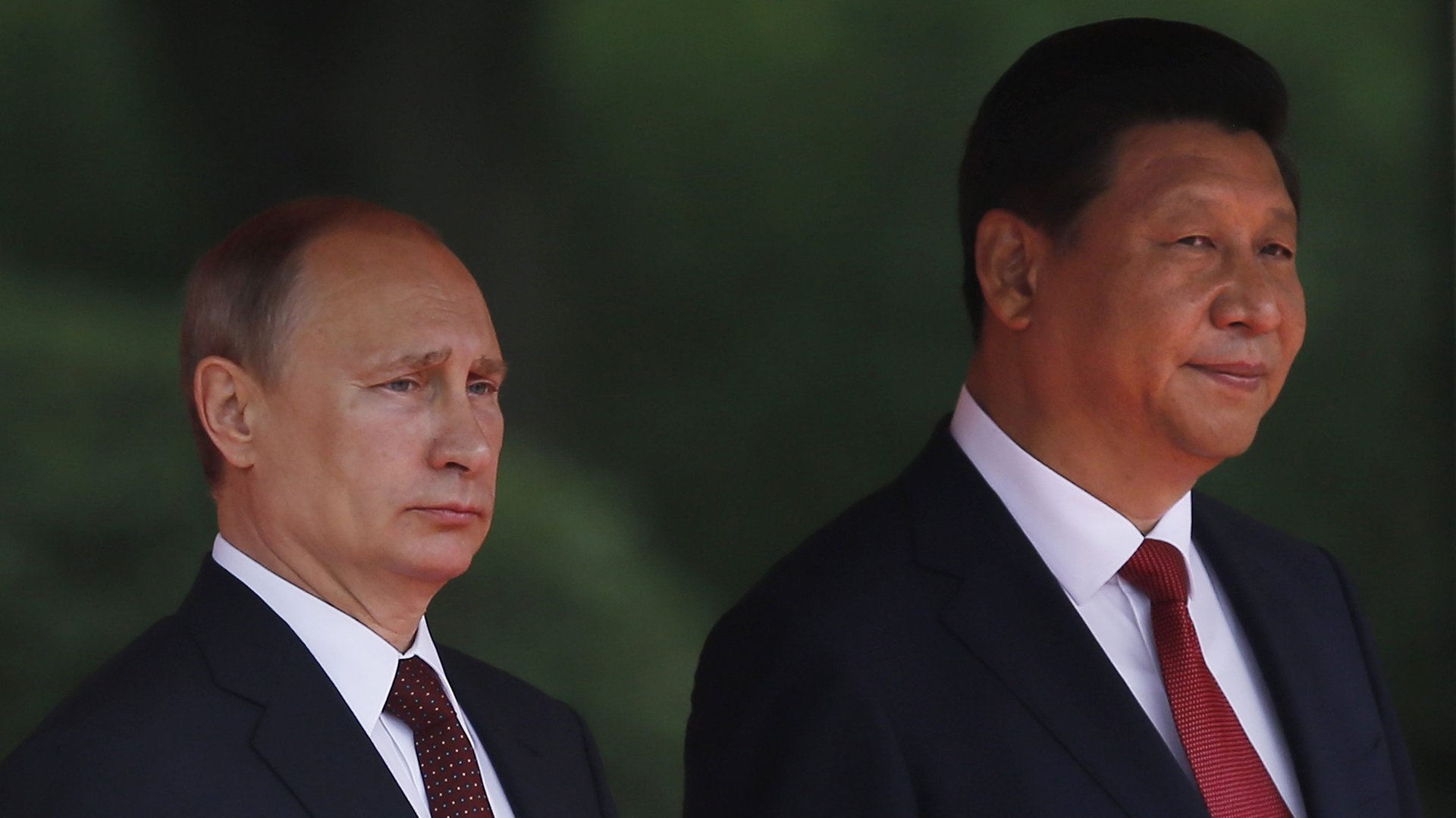Strongmen like Putin and Xi might seem all powerful—but they make their countries weaker
Correction: The alleged poisoning of a British agent on U.K. soil is an “alleged attempted murder,” not an “alleged murder.” Quartz regrets the error.


Correction: The alleged poisoning of a British agent on U.K. soil is an “alleged attempted murder,” not an “alleged murder.” Quartz regrets the error.
It’s turning into quite a month for global strongmen.
Last weekend, Chinese president Xi Jinping upended his country’s two-term limit on power, meaning there’s now little to stop him from ruling for life. Two days later, Turkey’s Recep Tayyip Erdogan pushed through sweeping changes to the electoral system that give him a strong chance of extending his 15-year reign in the 2019 elections.
And there’s zero doubt that Russia’s Vladimir Putin will be re-elected with a massive majority on Sunday, taking him to a total of 24 years in power by the end of his next six-year term.
Donald Trump responded last week by joking that America should itself give the president-for-life thing “a shot someday.” But the idea could have some actual backing among Trump voters: A 2017 Pew poll showed that 33% of Republicans (paywall) would like a “strong leader” whose power is unchecked by courts or Congress.
All this fits nicely into the narrative of the world turning authoritarian at an unsettling speed.
At times, that strongman model can look tempting. Putin’s centralized rule and disregard for international law allows him to take quick, daring actions that can leave liberal democracies looking impotent and flat-footed. The West’s riposte to Russia’s alleged attempted murder of a British agent on UK soil, for example, has so far been limited to the expulsion of a few diplomats and a grumpy letter from Britain’s friends.
But take a step back, and you start to see all kinds of flaws in the strongman method.
Putin may be able to flex his muscles on some international issues, but the length and autocratic nature of his reign has left Russia far weaker than it should be. The Russian president has shored up power with patronage. To stay popular with the masses, he has had to take massive risks—among them the seizure of Crimea—which have alienated Moscow from all the main global powers. On the world stage, Putin is more of a reactionary counter-puncher than an agenda-setter.
Xi risks following Putin’s lead and sapping the dynamism out of his country’s economy—which became the world’s second-largest under a political system where the leading actors rotate and institutions more or less function. Strongman rule, by its very nature, undermines those institutions. Russia’s constant plunging in and out of recession should serve as a cautionary tale. For all its frustrations and seeming impotency, the “Western liberal order” bears that name because it is the order.
Correction: The weekend brief on authoritarian leaders should have called an alleged poisoning of a British agent on U.K. soil an “alleged attempted murder,” not an “alleged murder.” Quartz regrets the error